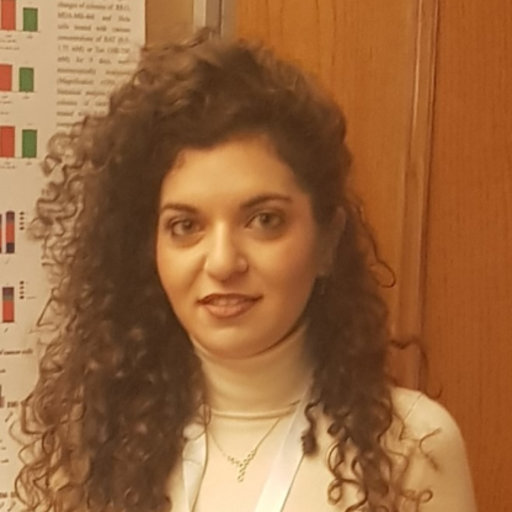Submission Deadline: 31 December 2025 (closed) View: 666 Submit to Journal
Prof. Aristides M.Tsatsakis
Email: tsatsaka@uoc.gr
Affiliation: Laboratory of Toxicology and Forensic Sciences, Medical School, University of Crete, 71003 Heraklion, Greece
Research Interests: telomeres, telomere leght, aging, molecular basis, anti-aging therapies

Prof. Andreea Letiția Arsene
Email: andreea.arsene@umfcd.ro
Affiliation: Faculty of Pharmacy, Carol Davila University of Medicine and Pharmacy, 6, Traian Vuia Street, 020956 Bucharest, Romania
Research Interests: biochemistry, pharmacology, antioxidants, molecular biology, neuroscience, pharmaceutical development

Ms. Miruna-Maria Apetroaei
Email: miruna-maria.apetroaei@rez.umfcd.ro
Affiliation: Faculty of Pharmacy, Carol Davila University of Medicine and Pharmacy, 6, Traian Vuia Street, 020956 Bucharest, Romania
Research Interests: molecular mechanisms, pharmacotherapy, telomeres, telomere length, drug science

Dr. Stella Baliou
Email: s.baliou@med.uoc.gr
Affiliation: Laboratory of Toxicology and Forensic Sciences, Medical School, University of Crete, 71003 Heraklion, Greece
Research Interests: Molecular biology, telomeres, healthy aging, telomeres in diseases, age-associated diseases

Telomeres, the protective caps at the ends of chromosomes, are crucial in maintaining genomic stability, regulating cell division, and influencing cellular lifespan. Alterations in telomere biology have profound implications for human health, particularly in the context of aging and a wide range of diseases, including cancer, cardiovascular diseases, neurodegenerative disorders, and genetic syndromes. This special issue seeks to explore the molecular and cellular mechanisms underlying telomere function and dysfunction, and their roles in health and disease. By bringing together cutting-edge research from global experts, this issue aims to shed light on the complex biology of telomeres and how they contribute to both the aging process and various pathological conditions.
Key areas of focus include, but are not limited to:
1. Molecular Mechanisms of Telomere Maintenance:
Investigating the molecular players involved in telomere elongation, maintenance, and protection.
Exploring the role of telomerase and alternative telomere-lengthening mechanisms in maintaining telomere function across different cell types.
2. Telomeres and Cellular Aging:
Examining the relationship between telomere shortening and cellular senescence.
Understanding how telomere attrition influences age-related decline in tissue regeneration and function.
3. Telomere Dysfunction in Human Disease:
Investigating the role of telomere dysfunction in the pathogenesis of age-related diseases such as cardiovascular disease, Alzheimer's, and other neurodegenerative conditions.
Understanding the contribution of telomere shortening and telomerase deficiency in cancer development and progression.
Exploring telomere-related disorders, including those caused by mutations in telomerase or other telomere-associated proteins.
4. Telomeres in Stem Cells and Regenerative Medicine:
Analyzing how telomere dynamics impact stem cell function, tissue regeneration, and the potential for therapeutic interventions.
Exploring strategies to manipulate telomere length and function to promote healthier aging and enhance regenerative capacities.
5. Novel Approaches to Modulating Telomere Function:
Investigating therapeutic strategies aimed at preserving or restoring telomere length, including small molecules, gene therapies, and lifestyle interventions.
Examining the potential of telomere-based biomarkers for disease prognosis and treatment response.
We welcome original research articles, reviews, and perspectives that explore the molecular mechanisms of telomere biology and its implications for human health and disease. By highlighting the latest findings and emerging challenges in the field, this issue aims to deepen our understanding of telomere dynamics and open new avenues for therapeutic interventions targeting telomere-related diseases and aging.


 Submit a Paper
Submit a Paper Propose a Special lssue
Propose a Special lssue